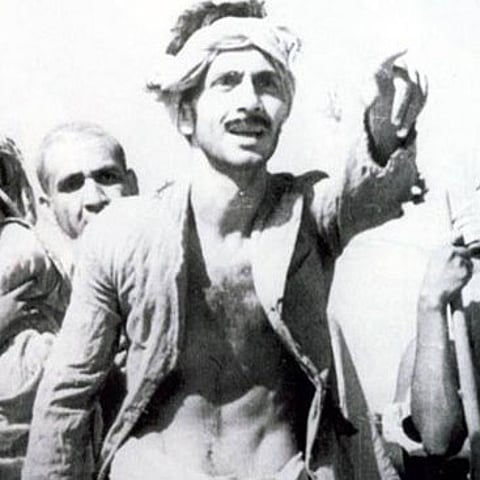In October 1939, Khwaja Ahmad Abbas penned an open letter to Mohandas Karamchand Gandhi, who had commented some years previously on cinema being a "sinful technology". Abbas' letter argued with Gandhi to reconsider the potential of the medium. "My dear Bapu," he wrote, "Today I bring for your scrutiny and approval a new toy my generation has learnt to play with – the CINEMA!…All that I wish to say is that cinema is an art, a medium of expression and therefore it is unfair to condemn it. You are a great soul Bapu… Give this little toy of ours, the Cinema, which is not as useless as it looks, a little of your attention and bless it with a smile of toleration."
The Cinema, as Abbas called it, was just one part of the vast and varied repertoire of his work. Yet it served the same purpose Abbas sought to serve through all his life – of creating social reform, debate and change. In a full life, Abbas wrote over 70 books, directed around 20 films and wrote some of the most iconic screenplays of his era. This prolific communicator and committed man of the masses is a towering presence in the history of Mumbai cinema, with a legacy that is only now being fully recognised. In 2015, a year after his centenary, a volume titled Bread, Beauty, Revolution: Khwaja Ahmad Abbas 1914-1987 was published, which brings together a collection of his writings, interviews and translated work. The glossy volume, edited by Iffat Fatima and Syeda Saiyidain Hameed, draws from a diverse range of sources, and is a useful introduction to his many talents, for a generation that too often knows him as "the man who launched Amitabh Bachchan". The title of the book draws from Abbas' experience at the Andhra Progressive Writers Conference in 1982, held in Madras. As poem after poem was read out in unfamiliar languages, Abbas was struck by the universality of the slogan that followed each session: "Inquilab Zindabad". It was a slogan, he noted, he had heard across the length and breadth of India. He interrogated his companions for a few more words common to different Indian languages and came up with the three used here: bread (ann), beauty (sundar) and revolution (inquilab).

